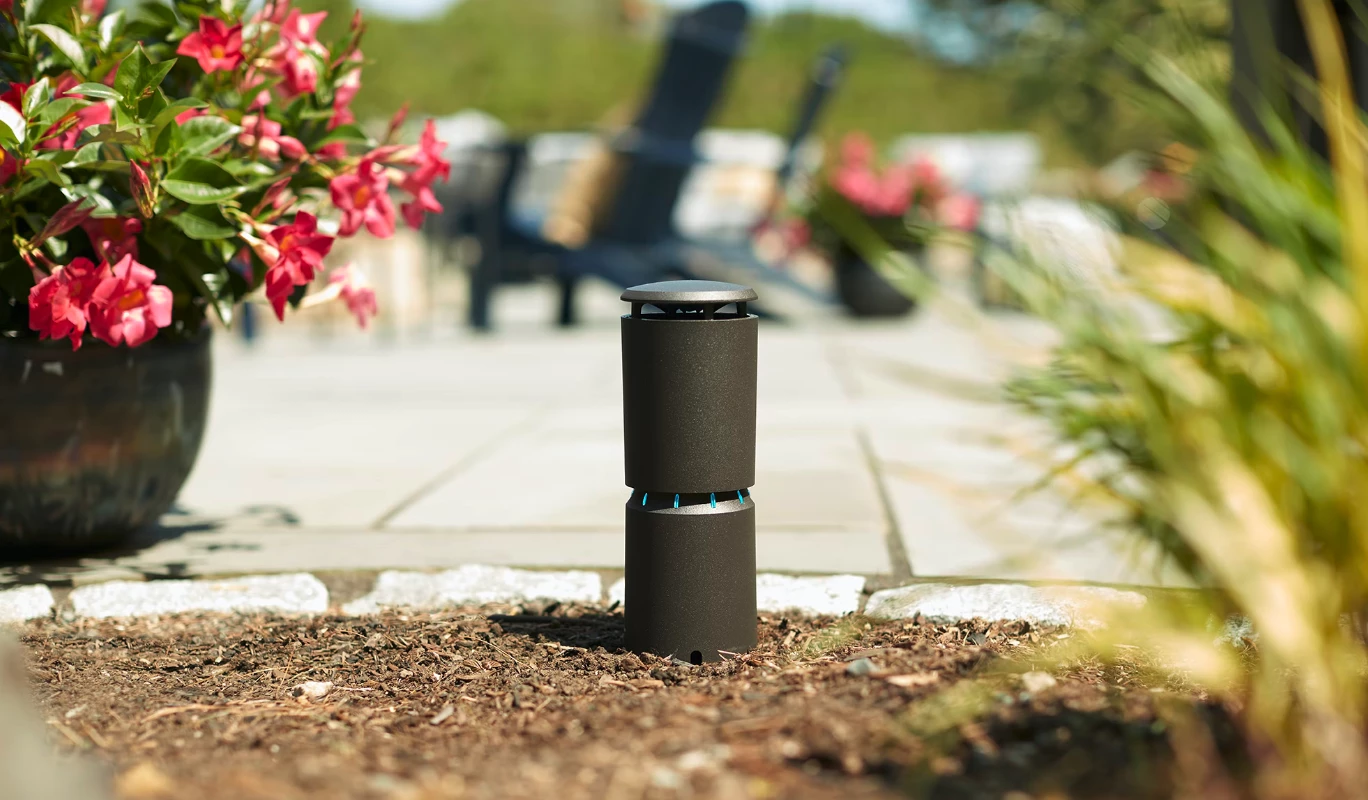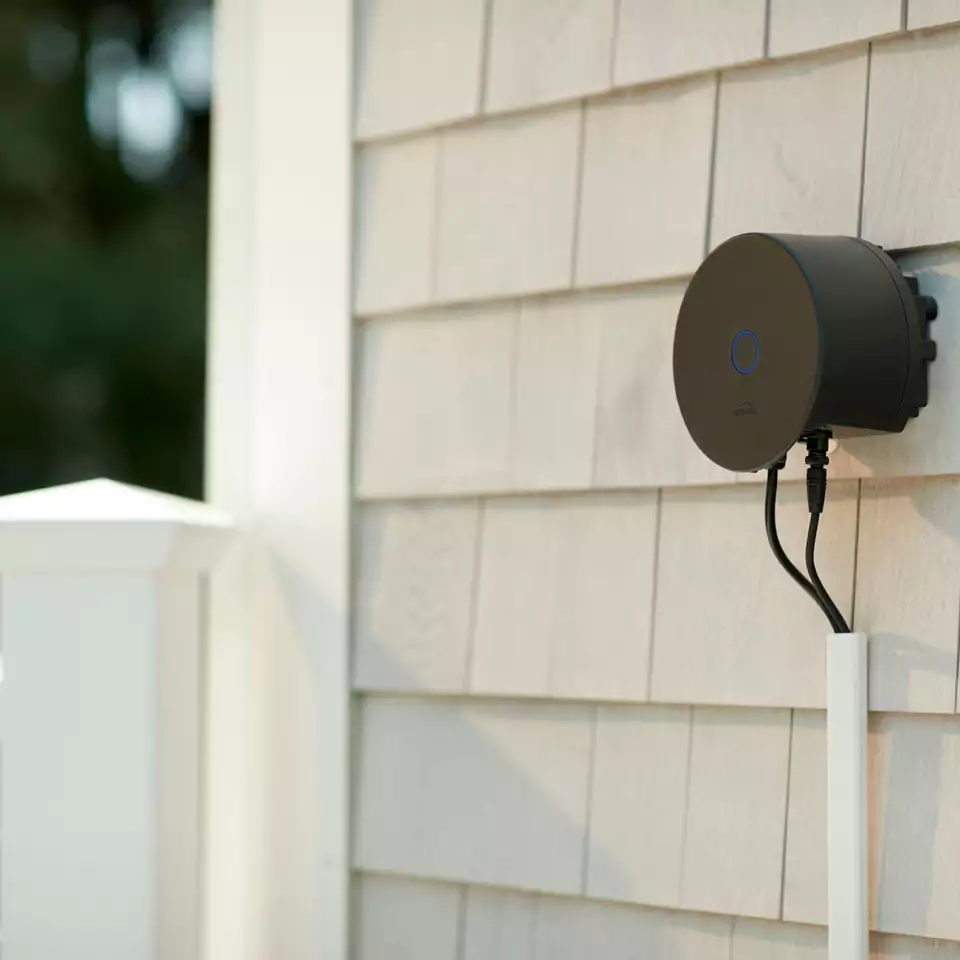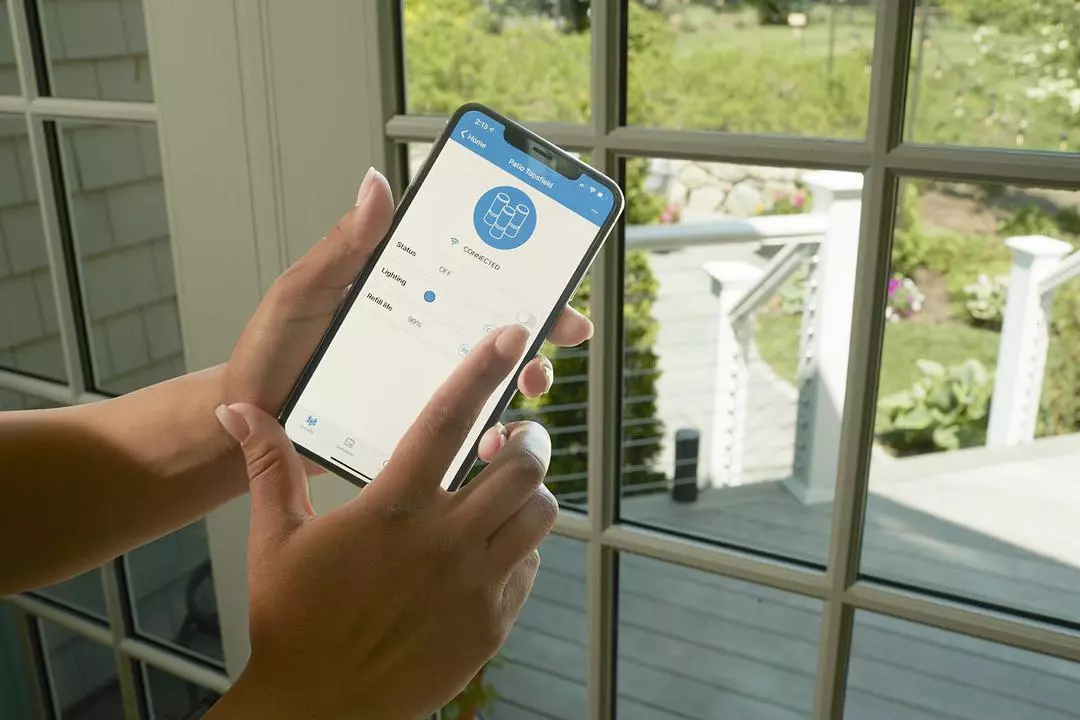Thermacell has updated its mosquito-repelling technology for the smart home age. The new Liv system ties together multiple repeller units with a smart hub and mobile app, putting up an intelligent mosquito barrier around entire decks and outdoor spaces. So instead of having to stay within the finite range of one of the company's standalone repellers, homeowners and their families can play, work and roam without worrying about pesky mosquitoes.
Thermacell repellers are a popular, low-hassle mosquito-control option, but if there's one knock on them, it's that they only offer a limited protection zone that extends out 15 to 20 feet (4.6 to 6 m). Step beyond that, and you're on your own against the fluttering bloodsuckers. In practice, a Thermacell repeller is great if you're sitting out on the deck or in the yard but much less effective if you want to wander around without having to carry a repeller with you.
Thermacell has long offered a Perimeter System that lets users stake multiple repellers around the yard, but that system creates hassles of its own. Namely, you have to individually turn on each repeller when you want to use them and replace the four-plus-hour repellent tabs and 12-hour butane cartridges as needed. It's essentially just a group of standalone repellers that operate as such.

With the Liv system, Thermacell looks to create a more streamlined, centralized multi-repeller system that can cover the parts of a property homeowners use most. The system brings together up to five individual repellers, a central smart hub and a Liv+ mobile app with voice capabilities. The hub plugs into an outdoor electrical outlet and powers all the individual repellers via hard wiring. Each repeller offers a 20-foot (6-m)-diameter protection zone, and all five together create a 1,575-sq ft (146-sq m) mosquito-free area. Users will need to measure out their property to strategically place the repellers in a way that best protects the areas in which they spend the most time.

A hardwired setup may seem counterintuitive in an increasingly wireless world, but the wiring prevents the need to individually power each repeller with batteries or liquid fuel. Users do need to load each one with a canister of 5.5-percent metofluthrin-based repellent solution, but unlike the methofluthrin-based canisters and allethrin-based mats used for other Thermacell products, each Liv canister is designed to last 100 hours. Thermacell defines that as a full summer season of 12 weeks at eight hours per week, but even if you use the system more frequently, at least you won't be replacing cartridges nearly as often as you would with the mats on the Perimeter System. Thermocell says that the Liv repellent is scent-free and invisible.
Each repeller offers a 20-foot diameter protection zone, and all five together create a 1,575-sq ft mosquito-free area
Using the Liv+ app, homeowners can easily turn the system on or off, check repellent cartridge levels, and create on/off timers. Thermacell promises that the equipment is waterproof and weatherproof, able to withstand season after season of permanent outdoor installation.

Thermacell introduced the Liv system last August and made it available for order this week, just in time for homeowners starting to think about the spring and summer, at least in the Northern Hemisphere. The Liv system is much more expensive than Thermacell's other products, but the company is currently advertising a trial that lets buyers try it out for up to 100 days and return it for a full refund if they're unsatisfied. A three-repeller kit retails for $699, a four-repeller kit $799, and a five-repeller kit $899. Buyers can also purchase repellers and other components individually.
Replacement repellent cartridges aren't cheap, either, priced $120 each to $245 for a five-pack. But again, at 100 hours, they last multiple times longer than the four- to 40-hour repellent replacements on other Thermacell products.
Source: Thermacell











